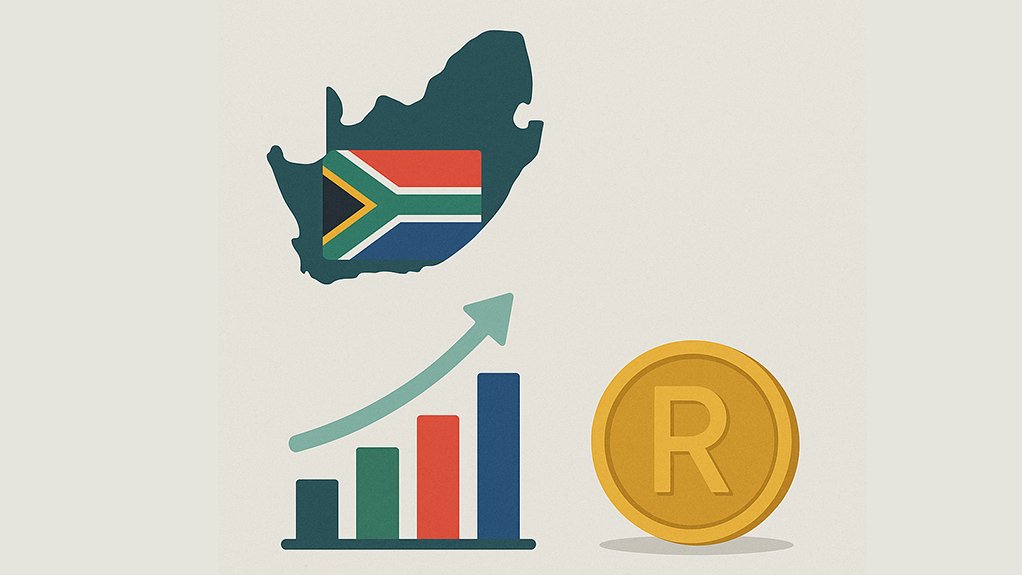Why South African Fintech is Emerging as a Key Driver of Economic Growth
This article has been supplied.
Fintech in South Africa drives fast economic transformation through its innovative and inclusive and scalable financial solutions. The space which used to be a startup niche has evolved into one of Africa's leading fintech ecosystems. Digital finance solutions have penetrated the entire economy through peer-to-peer lending and payment gateways and advanced trading platforms. The financial market has become more accessible through copy trading because novice investors can duplicate seasoned traders' strategies to enter complex markets at a lower cost while bringing new investors into the space.
This growth exists because of expanded accessibility to financial services. The formal financial system now serves millions of South Africans who were previously denied access because of mobile platforms and digital tools. Fintech products connect traditional banking services with underserved populations throughout rural regions as well as low-income areas. Mobile wallets together with digital bank accounts and flexible lending platforms have made financial activities accessible to all citizens who previously could not participate. The widespread inclusion benefits individual people and simultaneously drives increased economic development.
The digital revolution brings its greatest advantages to business owners and small business entrepreneurs. Fintech has simplified payment reception and finance management as well as loan access and non-traditional credit score development. The essential role of fintech becomes clear because SMEs make up more than 90% of South African businesses. Fintech support creates substantial economic impact through its effects on both job creation and GDP growth beyond individual companies.
The economic influence of fintech is growing stronger because blockchain technologies and decentralized finance (DeFi) platforms achieve rapid market adoption. Although they have not gained widespread acceptance these new tools demonstrate the potential to cut down costs and enhance transparency and remove intermediaries. Remittance fees along with cross-border transactions and administrative overheads have long been efficiency barriers in this country but these barriers are now addressed. Blockchain-based solutions operate across various sectors such as land registration and supply chain financing because of their wide application scope.
The fintech industry of South Africa incorporates artificial intelligence and machine learning technologies as essential components. AI applications have transformed financial services into more precise and reliable operations through fraud detection and customized credit evaluation systems. Through mobile phone usage patterns and social media behavior and transaction histories lenders now determine creditworthiness beyond income or employment history. The expanded credit evaluation process provides greater financial inclusion without raising risk levels. The implementation of this approach reduces traditional system limitations such as bias and inflexibility.
The fintech boom exists independently from all other developments. Regulatory bodies maintain equal speed with market development. Financial regulators of South Africa operate innovation hubs with sandboxes that enable companies to test their products under controlled conditions. These initiatives protect consumers while promoting innovation and providing startups with ways to manage compliance matters without getting burdened by bureaucratic processes. South Africa has established itself as an attractive destination for international investors together with fintech firms that seek stable scalable markets in the continent.
The combination of strategic partnerships and venture capital investments creates rapid growth in the market. Local startups now obtain funding from South African institutions together with investments from global fintech funds and accelerators. The investments bring financial resources together with specialized expertise and guidance along with universal business standards. New employment opportunities emerge from these collaborations that also enhance local technology education while developing new analysts and product managers and developers.
The economic influence of fintech expands across different business areas. Mobile platforms enable farmers to find buyers and estimate future crop prices and obtain insurance protection against weather events. Healthcare benefits from fintech tools which provide digital health insurance and flexible payment systems that improve medical coverage for low-income people. Modern payment systems and loan programs provide educational funding to students from lower-income backgrounds who must avoid the strict requirements of conventional financial institutions.
Fintech has introduced a cultural transformation which makes people more financially literate and self-assured. The growing number of financial tools empowers people to take charge of their financial management. Digital financial management applications now teach users about money handling through automated tracking systems and spending analysis features and investment recommendation tools. The economic inequality issue in this country makes this transformation especially beneficial. Better financial control among people strengthens the economy as a whole.
Corporate players must innovate because of market pressures. The former banking giants now face a need to adapt to their digital operations due to their slow-paced nature in the past. Various banking institutions collaborate with fintech startups through partnerships or acquisitions to stay ahead of the competition. Several organizations launched digital-first platforms alongside their innovation hubs. Consumer services have experienced significant improvements because of competition that led to better fees and faster processing and improved user interfaces and better customer support.
South African fintech will advance through better integration and collaboration between entities while keeping inclusion as a core focus as the digital ecosystem matures. Open banking, which allows customers to grant third-party providers access to their financial data to deliver improved services is expected to emerge as the upcoming major development. South Africans will experience a complete transformation of their financial relationships through open banking when combined with enhanced cybersecurity measures.
South African economic operations now depend on fintech as an essential foundation instead of functioning as a peripheral disruptor. The fintech sector enables expanded industry participation through reduced entry points and enhanced transparency while driving innovative solutions which lead to improved efficiency. The future holds numerous opportunities while the existing momentum continues to grow.
Article Enquiry
Email Article
Save Article
Feedback
To advertise email advertising@creamermedia.co.za or click here
Press Office
Announcements
What's On
Subscribe to improve your user experience...
Option 1 (equivalent of R125 a month):
Receive a weekly copy of Creamer Media's Engineering News & Mining Weekly magazine
(print copy for those in South Africa and e-magazine for those outside of South Africa)
Receive daily email newsletters
Access to full search results
Access archive of magazine back copies
Access to Projects in Progress
Access to ONE Research Report of your choice in PDF format
Option 2 (equivalent of R375 a month):
All benefits from Option 1
PLUS
Access to Creamer Media's Research Channel Africa for ALL Research Reports, in PDF format, on various industrial and mining sectors
including Electricity; Water; Energy Transition; Hydrogen; Roads, Rail and Ports; Coal; Gold; Platinum; Battery Metals; etc.
Already a subscriber?
Forgotten your password?
Receive weekly copy of Creamer Media's Engineering News & Mining Weekly magazine (print copy for those in South Africa and e-magazine for those outside of South Africa)
➕
Recieve daily email newsletters
➕
Access to full search results
➕
Access archive of magazine back copies
➕
Access to Projects in Progress
➕
Access to ONE Research Report of your choice in PDF format
RESEARCH CHANNEL AFRICA
R4500 (equivalent of R375 a month)
SUBSCRIBEAll benefits from Option 1
➕
Access to Creamer Media's Research Channel Africa for ALL Research Reports on various industrial and mining sectors, in PDF format, including on:
Electricity
➕
Water
➕
Energy Transition
➕
Hydrogen
➕
Roads, Rail and Ports
➕
Coal
➕
Gold
➕
Platinum
➕
Battery Metals
➕
etc.
Receive all benefits from Option 1 or Option 2 delivered to numerous people at your company
➕
Multiple User names and Passwords for simultaneous log-ins
➕
Intranet integration access to all in your organisation





















